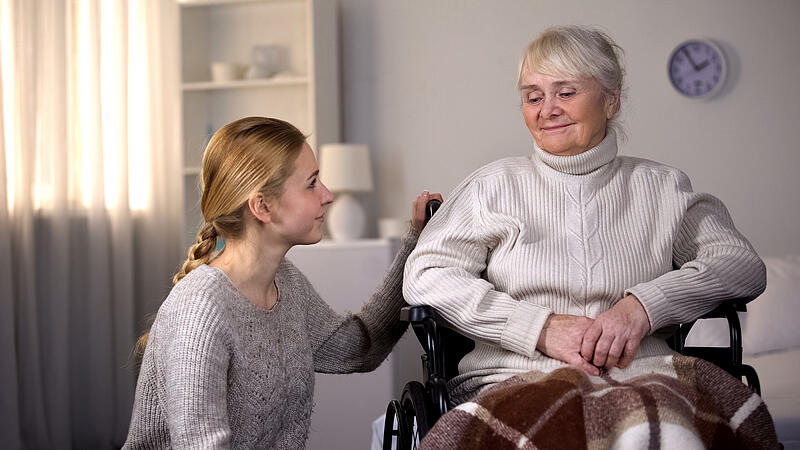Image: (State of Upper Austria/Colourbox)
80,000 people in Upper Austria are in need of care. Of these, just over 35,000 receive “help from outside”, through mobile care services (around 20,500), 24-hour care (3,700) or in homes (11,000). More than half of the people in need of care are cared for exclusively by relatives at home. “You are taking so much work off the system. This is actually happening without pay,” said Birgit Gerstorfer, state president of the pensioners’ association, on Monday at a press conference in Linz.
According to the motto “mobile before stationary”, the former SP social councilor presented demands to politicians in order to defuse the “dramatic situation in the care sector”. These force “time out” for caring relatives. Specifically, more short-term care places and day centers should be created. “A massive expansion” is necessary in this area, said Gerstorfer. Firstly, it is difficult to even get a place. Secondly, short-term care is very expensive. Georg Oberhaidinger, head of the care working group in the pensioners’ association, gave an example from his environment: A married couple paid about the same amount for their own vacation as for short-term care for their family member in need of care. “That can’t be.”
Affordable short-term care instead of a bonus
Instead of the family bonus of 125 euros per month, the costs for short-term care should be reduced, the state president added. In addition, district boundaries for social welfare associations would have to be broken down, said Gerstorfer. “If people in need of care want services outside of their area of residence, that is an almost impossible undertaking.”
OÖN TV: “Time out” required for caring relatives
“Foreign nurses do not solve the problem”
Gerstorfer also complained that many projects from her time in state politics had not been continued. She described the recruitment of foreign nursing staff, for example from the Philippines, as a “drop in the ocean”. “That’s not going to solve the problem,” she said. Instead, the focus should be on caring relatives – the “largest nursing service in the country”.
Georg Oberhaidinger knows from his own experience that those affected quickly reach their limits in the current situation. “My wife had to give up her job as a secretary so that she could be there for her mother,” said the head of the care working group in the pensioners’ association. Returning to working life was difficult. “Caring for relatives is often associated with social decline,” said Oberhaidinger.
50,000 additional nurses by 2050
Relieving the burden on relatives in care should also take the pressure off of other systems (e.g. homes, note). It is well known that the need for nursing staff is increasing due to demographic developments. According to forecasts, 50,000 additional nursing staff will be needed in Austria by 2050.
Yesterday, the office of State Councilor for Social Affairs Wolfgang Hattmannsdorfer (VP) said: “We are united by one major concern: our parents and grandparents should continue to grow old well and happily in Upper Austria and we want to relieve the burden on our nursing staff.” The state councilor referred to the “skilled workforce strategy “. For the first time, it was possible to slow down the rapid increase in empty care beds.
More on the subject: 25 years ago, Caritas was the first organization in Upper Austria to create offers for caring relatives
My themes
For your saved topics were
new articles found.

info By clicking on the icon you can add the keyword to your topics.
info
By clicking on the icon you open your “my topics” page. They have of 15 keywords saved and would have to remove keywords.
info By clicking on the icon you can remove the keyword from your topics.
Add the topic to your topics.
Source: Nachrichten




